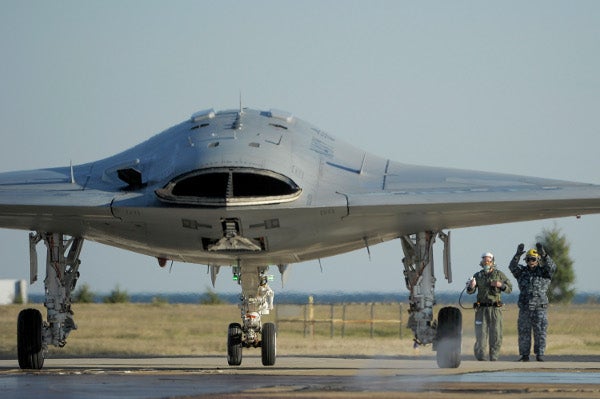
The US Navy and Northrop Grumman have successfully completed first shore-based trials of control display unit (CDU), in support of the X-47B unmanned combat air system (UCAS) demonstrator at Naval Air Station Patuxent River, Maryland, US.
During the testing earlier this month, the team used Northrop-built CDU to control the X-47B’s engine thrust to move the aircraft forward, brake and stop, as well as executed precision turns using nose wheel steering.
The new wireless, handheld device also validated its capability to efficiently manoeuvre the X-47B UCAS into a catapult or out of the landing area following a mock carrier landing.
Northrop Grumman’s UCAS-D test director Daryl Martis said: "The CDU will help streamline and enable many of the flight test operations required for UCAS-D shore-based carrier suitability testing.
"Instead of towing the aircraft out to the flight line, we can now start the X-47B outside its hangar, then use the CDU to taxi it out to the runway, or into a catapult for launch."
The UCAS-D programme is scheduled to conduct first shore-based catapults of X-47B aircraft to demonstrate CDU capability onboard aircraft carrier, later this month.
In 2013, the programme aims to validate the X-47B performance to safely operate from a US Navy aircraft carrier, including launch, recovery, and air traffic control operations.
As part of UCAS-D programme, the team is also planning to mature technologies required for potential future navy unmanned air system programmes.
Northrop-led team for UCAS-D programme comprises GKN Aerospace, Lockheed Martin, Pratt & Whitney, Eaton, General Electric, UTC Aerospace Systems, Dell, Honeywell, Moog, Wind River, Parker Aerospace and Rockwell Collins.
Image: Northrop-built X-47B UAS undergoing remote-control trials. Photo: courtesy of Northrop Grumman Corp.




